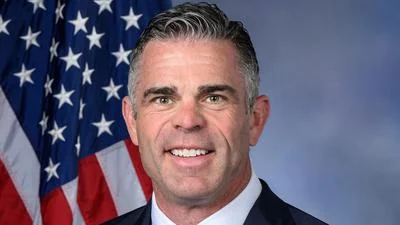Scott Rathgaber, MD, Chief Executive Officer | Bellin Health's Bellin Memorial Hospital
Scott Rathgaber, MD, Chief Executive Officer | Bellin Health's Bellin Memorial Hospital
No matter the activity level, individuals are advised to drink more water and avoid waiting until they feel thirsty. Consuming plain water or drinks with electrolytes can help maintain hydration and energy levels. Drinks containing alcohol or large amounts of sugar should be avoided as they can lead to dehydration. Keeping water nearby is recommended to encourage frequent intake.
For those without air conditioning at home, visiting places like libraries, shopping malls, fitness centers, or grocery stores can provide a cool environment during extreme heat. Many local establishments open their doors in such conditions to offer community members a space to cool off and recharge. Spending even a few hours in air conditioning can help keep the body cool when returning to the heat.
While electric fans may offer comfort, they are not effective in preventing heat-related illness when temperatures soar into the high 90s. A cool shower or bath, or spending time in an air-conditioned space, is a more effective way to stay cool.
Lightweight, light-colored, loose-fitting clothing is recommended as it reflects heat better than dark clothing and allows for sweating which helps dissipate body heat. For children swimming, wearing light-colored swimsuits makes them easier to spot in the water.
The risk of heat-related illness increases significantly if someone is left in a closed vehicle. Even brief exposure can cause life-threatening damage due to rapid dehydration.
Certain groups are more vulnerable to heat illness than others. Regular checks on infants and young children, seniors aged 65 and older, people with mental illnesses, and those physically ill—especially those with heart disease or high blood pressure—are advised.
To continue physical exercise safely during hot weather, staying hydrated is crucial by drinking two to four glasses of cool nonalcoholic fluids each hour. Sports drinks with electrolytes can help replenish lost salts and minerals through sweat. Limiting physical activities to cooler morning and evening hours and taking rest breaks in shady areas are also recommended measures. Indoor exercise within an air-conditioned environment could be considered as an alternative.
Sun protection remains important even on cloudy days as UV rays penetrate through clouds. Wearing wide-brimmed hats and sunglasses alongside applying sunscreen with an SPF of 15 or higher provides necessary protection from harmful sun exposure. Products labeled “broad spectrum” or “UVA/UVB protection” should be used for optimal defense against UV rays.






 Alerts Sign-up
Alerts Sign-up